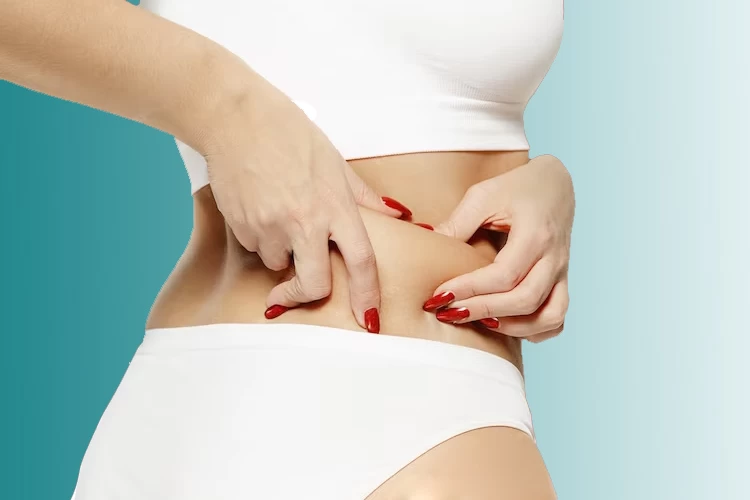Liposuction is a popular cosmetic procedure that has become increasingly sought-after by individuals looking to reshape their bodies. However, despite its popularity, there are still many misconceptions surrounding this surgery. In this article, we will address the myths and provide clear facts about Liposuction Surgery in Dubai, helping you better understand what the procedure entails and what to expect.
What Is Liposuction?
Liposuction is a surgical procedure designed to remove excess fat from specific areas of the body, such as the abdomen, thighs, arms, and hips. It is not intended as a weight-loss method, but rather as a body contouring solution for individuals who are near their ideal weight but have stubborn pockets of fat that resist diet and exercise.
Myth 1: Liposuction is a Quick Fix for Weight Loss
Fact: Liposuction is not a weight-loss solution.
Many people believe that liposuction can be a quick and easy way to lose significant weight. However, it is important to understand that liposuction is intended for body contouring, not weight loss. The procedure removes fat in specific areas of the body, but it is not a substitute for a healthy lifestyle. The amount of fat removed in a typical liposuction procedure is limited, and it is important to maintain a healthy diet and regular exercise routine to prevent fat from returning.
Myth 2: Liposuction is a Risk-Free Procedure
Fact: Like any surgery, liposuction carries risks.
While liposuction is generally considered safe when performed by an experienced professional, it is still a surgical procedure that carries inherent risks. These risks can include infection, scarring, blood clots, and complications related to anesthesia. Additionally, the results of liposuction can vary from person to person, and achieving the desired outcome depends on several factors, including skin elasticity and overall health.
Myth 3: Liposuction Results Are Permanent
Fact: Liposuction does not prevent future weight gain.
One common misconception is that the fat removed through liposuction will never come back. While liposuction permanently removes fat cells from treated areas, it does not prevent new fat from accumulating. If you do not maintain a healthy lifestyle after the procedure, it is possible for new fat to develop in other areas of the body, leading to changes in your overall appearance. Maintaining a balanced diet and regular exercise is crucial to ensuring that your results last over time.
Myth 4: Liposuction Is Only for Women
Fact: Liposuction is suitable for both men and women.
Liposuction is not gender-specific and can be used by both men and women. Men often seek liposuction for areas such as the abdomen, chest, or love handles, while women may target the thighs, hips, or stomach. The procedure is designed to address specific fat deposits, and the treatment areas can be customized based on the individual's needs and goals.
Myth 5: Liposuction Will Tighten Your Skin
Fact: Liposuction does not always tighten loose skin.
While liposuction removes fat, it does not always address skin laxity. If you have significant loose or sagging skin, liposuction may not be the best solution for you. In some cases, the skin may not contract enough to accommodate the new body contour after fat removal. In such cases, additional procedures, such as skin tightening treatments or surgery, may be required to achieve the desired results. It's essential to have a consultation with a skilled professional who can assess your skin's elasticity and advise on the best course of action.
Myth 6: Liposuction is a One-Time Procedure
Fact: Liposuction results may require touch-ups.
While liposuction can produce dramatic results, it does not guarantee a lifetime of flawless body contours. As with any cosmetic procedure, the body continues to change with age, and weight fluctuations can impact the final outcome. Some individuals may choose to undergo additional treatments to maintain or refine their results over time.
Myth 7: Liposuction Is Only for People Who Are Unhealthy
Fact: Liposuction is intended for healthy individuals.
Liposuction is designed for individuals who are already in good health but have localized fat deposits that do not respond to diet and exercise. It is not a procedure for people with significant obesity or underlying health conditions. Candidates for liposuction should be at or near their ideal weight, have realistic expectations, and be committed to maintaining a healthy lifestyle after the procedure.
Myth 8: Liposuction Has No Recovery Time
Fact: Liposuction requires a recovery period.
Though liposuction is considered a minimally invasive procedure compared to more invasive surgeries, it still requires a recovery period. After the procedure, you may experience swelling, bruising, and discomfort, which can last for several days or weeks. The recovery time varies depending on the extent of the surgery, the area treated, and your body's ability to heal. Patients are typically advised to avoid strenuous activities for a few weeks and to follow post-operative care instructions carefully to ensure the best possible results.
Myth 9: Liposuction Is Only About Fat Removal
Fact: Liposuction can be used for body contouring and fat redistribution.
Liposuction isn't just about removing fat; it's also about reshaping and contouring the body. In addition to removing fat from targeted areas, liposuction can help achieve more proportional body contours. In some cases, fat can be removed from one area and transferred to another, such as in a fat transfer procedure. This technique can help enhance areas like the breasts or buttocks for a more balanced and aesthetically pleasing appearance.
Conclusion: The Real Picture of Liposuction
Liposuction can be an effective way to improve body contours and target stubborn fat, but it is important to have realistic expectations and understand the facts behind the procedure. It is not a quick fix for weight loss, nor is it a risk-free solution. As with any cosmetic surgery, the results of liposuction depend on various factors, including the individual's overall health, skin elasticity, and lifestyle choices after the procedure. By addressing the myths and understanding the facts, you can make an informed decision about whether liposuction is right for you.



